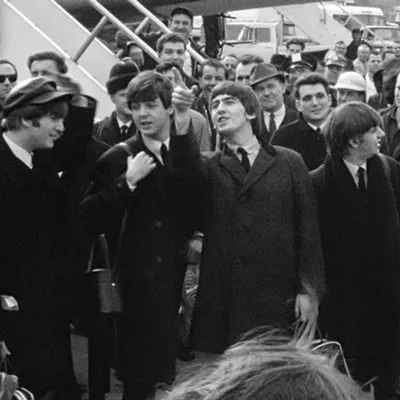Several years ago, my colleague Mike D'Angelo attempted a rather audacious experiment. While covering the 2007 Cannes Film Festival, he attended all the films in the festival's competition slate completely blind as to what he was going to see: not the title, not the premise, not the stars, not the director, nothing. It was in part an experiment in the relative effect of surprise vs. expectation, but I personally found it intriguing to speculate how long it might take — considering Cannes' usual lineup of established, world-class filmmakers — to figure out the director if the credits did not come at the beginning of a film. How singularly identifiable, I wondered, was any given auteur's fingerprint?
I flash back to this unique critical enterprise thanks to Fury, a period war epic by a director known for cinematic subject matter — modern-day crime-fighters — fairly distinct from period war epics. I wish I'd had the opportunity to watch Fury without knowing that it was written and directed by David Ayer, because I like to think eventually I'd have been able to identify his handiwork, much to my dismay.
At the outset, Fury feels like a bold approach to a brothers-in-arms soldier story. The in medias res opening finds the five-man crew of the U.S. Sherman tank nicknamed "Fury" in a hell of a mess: broken down and alone in the middle of a German battlefield in April 1945, one member of the team already dead and the odds of survival looking bleak. Instead of rallying together, these guys seem barely able to tolerate one another. The tank's commander, Sgt. "Wardaddy" Collier (Brad Pitt) doesn't just verbally berate his men, including engineer "Coon-Ass" Travis (Jon Bernthal); he literally kicks the crap out of them. Throughout much of the first half of Fury, there's a vibe of barely concealed contempt between most of the men, especially when the team's dead member is replaced by combat virgin Pvt. Norman Ellison (Logan Lerman). It's not merely hazing; it's a sense of complete disdain for the guys you need to protect your back.
Yet that exact dynamic is also why Fury begins to drift inexorably into something that's obviously "a David Ayer movie" — and that's not a great thing if you're not on his wavelength. As the screenwriter of Training Day and the writer/director of movies like End of Watch and this year's Sabotage, Ayer has focused his attention on men — and it's almost always men — who have to trust one another with their lives, even at times when someone is morally compromised. It's thematic material that's great at creating viscerally intense moments, but while Ayer has a knack for making his gritty violence feel real — and Fury offers more trauma inflicted on human bodies than Saving Private Ryan's Omaha Beach opening — he's not nearly as successful at finding reality in his characters.
Instead, he turns to something rudimentary in the central relationship between Collier and Ellison, in which Collier becomes exactly the "Wardaddy" mentor to the terrified rookie suggested by his nickname. There's a certain daring to the complexity Ayer tries to give Collier — playing both the Tom Berenger and Willem Dafoe roles from Platoon, his own traumatic experiences visible in the scars on his back and his hidden emotional breakdowns — and Pitt pitches his performance in a way that evokes his cocky commander character from Inglourious Basterds while also deepening it. Yet neither that character, nor any of the others, ultimately feel like they matter all that much to where Fury is going as it builds to the tank team's climactic suicide mission. It's two hours of high tension, lacking enough resonance to be truly memorable an hour after you've left the theater. ♦
















